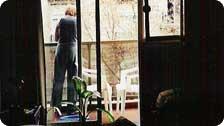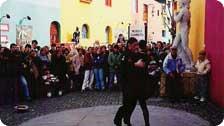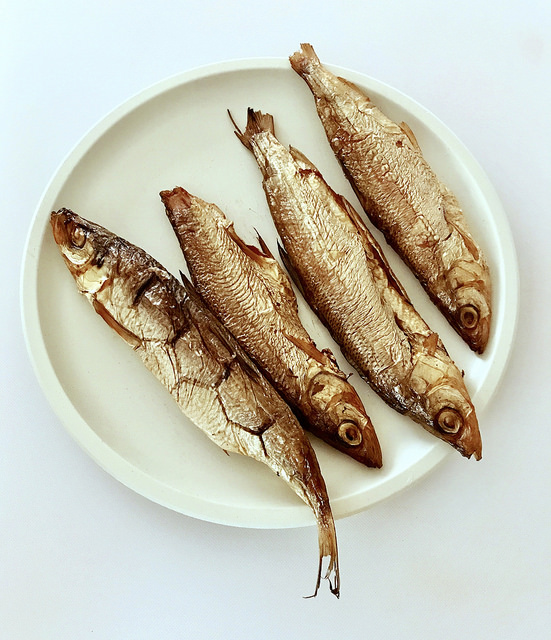Culture: Argentina: Mate Addict!
by Lesley Seacrist
Hi, my name is Lesley and I am addicted to Mate.
I can’t go one day without it. When I first started, I did it with a group of people, but when there is no one else—I still can’t resist. All my friends say that it is weird and the taste is unbearable, but that doesn’t stop me from having Mate when I wake up and again at night.
My addiction began when my mother and I visited my big sister in Buenos Aires, Argentina. I was a young freshman in high school from San Jose, played on the tennis team and was an honor student. My sister was fresh out of college from UC San Diego and went to Buenos Aires to learn Spanish, but she picked up more than how to just conjugate verbs.
I remember the first time she gave me the Mate. She pronounced it in her newly acquired Argentine accent. I couldn’t understand what she was handing me. I tried to repeat it with my Californian “Valley-girl” annunciation:“Shirba whata?”
Cassie turned towards her kitchen in a closet (her studio apartment was on the small-ish side) and shook her long highlighted hair with annoyance and repeated it louder and more pronounced.
“Yerba Ma—te! Just try some and I will tell you what it is,” she said, while handing me the small silver cup with a gold metal straw emerging out of a bubbling grassy-green substance—it was all so strange.
It was slightly warm to touch, and my lips trembled from anticipation, coming closer to the tip of the straw. I slowly took a sip. Instantly my mouth puckered in minor disgust. My sister laughed and assured me I would get used to the strong bitter taste of the tea. She was my older sister. I looked up to her. She told me to finish what was left in the cup and I quickly did so.
My sister poured some more water in the cup and handed it to my mother. She took a sip, told her she didn’t like it and went back to taking her nap, while taxi horns and political pick-up trucks were blaring out statements of discontent that vibrated through the entire room day and night. Up on the ninth floor, the balcony looked down upon Avenida De Mayo, near the financial district and Casa Rosada (Pink House), and pedestrians bustled around in one of the city’s busiest areas.
Cassie turned back to me and began naming the separate parts. The silver cup with a wooden interior was called the Mate, the decorative metal straw was a bombilla, the green mulched up leaves and twigs, similar looking to what a lawn mower spits out, is Yerba, of course sounded with the Argentine Ch sound, instead of the Y.
She picked up the thermos and poured more hot water in the Mate. She quickly sucked all the water out of the Yerba through the bombilla, moved it from side to side and poured in more piping hot water. After passing me the Mate that I was a little reluctant to drink again, she mentioned some rules. Rules to drinking tea? How uptight can these Argentines get?
1. I am the Mate server. After one person finishes their Mate, they pass it to me and then I fill it up and give it to the next one in the circle.
2. You have to finish your entire Mate.
3. Never disturb the bombilla, unless you are the server (I found that when my friends try Mate, they love to see the other end of the bombilla. They pull it out of the Mate. This causes little Yerba tea leaves to get inside the filter of the bombilla—leaving the next drinker to sip up a mouthful of leaves—not enjoyable)
4. The server decides whether or not to put sugar in the Yerba.
5. Mate goes great with Alfajores, which are chocolate covered cookies with dulce de leche oozing from the middle (more of a suggestion).
The last rule I had some trouble with back home in California:
6. Mate is a social drink—you don’t drink it alone.
Rule number six was completely true from my observation. Whether it was in parks, cafes or within homes, Mate is poured and passed over a futbol game, a conversation among close friends and during family functions. Mate is such an influential staple of the Argentine culture; they go together like the dance of tango and the famous early 1900s tango singer, Carlos Gardel.
Within no time at all I learned to love the bitter taste of Mate. Every sip was like dancing on the streets of La Boca, the colorful art district located on the mouth of the river. My legs would weave back and forth while my craving hands gracefully embraced the Mate, swaying to the accordion.
At that point during the visit, Mate was the only aspect of Argentina that I could become accustomed to. I had only taken one semester of Spanish in middle school, which meant that I knew how to count to ten. The fashion was about three years ahead of the U.S. and quite frankly, women’s chest sizes left me gasping for air. However, Mate was my saving grace, it was delectable, I didn’t need a dictionary to drink it and it was an authentic aspect of the Argentine culture that made me a little bit hyper and ready to go out dancing.
Since my mother opted not to join into the Mate circle, I often released a lot of tension to my sister’s listening ear. While my sister was teaching English during the day to businesswomen and men desperate for the Wall Street vocabulary, the mother and daughter duo set out to discover a cryptic city ourselves. Neither of us knew the language and found ourselves in some frustrating situations.
As a teenager my nerves would oftentimes get frayed over the silliest of things, like the embarrassment from asking for so much help—so afraid to look like a tourist and stick out like a sore thumb. I was young and immature and hopefully have since learned.
My sister and I would gossip and bitch and laugh and just plain vent about our troubles while drinking Mate. I soon integrated Mate to be a part of my own culture within a week of being there and began to hassle my sister to make Mate for us.
Before I left to go back to California, I bought my own Mate, bombilla, and Yerba. In the beginning, I would prepare it for myself, coaxing any nearby friend to participate. They perked up with interest, but that quickly got spit out along with the brownish-green liquid. Over the passing years I have notice small cafes carrying Yerba Mate. If the café was anywhere near my house, I would make it my home. I soon discovered that tea bags of Yerba would be easier for my own consumption. Each barista would soon learn what I drank.
When my sister Cassie finally came home from her extended stay, the first thing I wanted to do when she opened her suitcase was to find her Yerba (I had since ran out). Cassie told me to make it. I made an excited yelp and ran to the stove to heat up the water. She plopped herself on the comfortable home couch that she had been without for three years.
With our mother beside her, she began to tell of her adventures and hard-learned lessons. She brought back stories and souvenirs of Argentina and other countries of South America. Some memories were encouraging and inspirational like when she climbed all by herself up Macchu Picchu in Peru, when the others hired personal guides to carry all their baggage. Some were discouraging and emotion filled, like the personal relationships gained and lost with some of the locals.
While listening and pouring water in the Mate, my sister seemed tired. I could almost see the saturation of three years in Argentina in her face. She looked good, thinner, and her chest was more revealed (something I am still getting used to), but exhausted.
She was addicted to Argentina. She had her ups and downs. She met myriad people and saw a rainbow of different sights. For the most part she has pictures of them and phone numbers of friends met, but for her the tradition of Mate is a habit that she can practice everyday that reminds her of a different culture that has become a part of her own.
Almost six years later, I too still can’t nip the habit of Mate.
However, I guess when my habit contains all the essential vitamins, is a dietary fiber, a healthier form of caffeine, and a great way to socialize within a community, I am doing pretty well as far as habits go.
* * * *
About the Author:
Lesley Seacrist is our newest Tango Diva editorial assistant. Brava!
Discover more from Tango Diva
Subscribe to get the latest posts sent to your email.









